03. Landscape of EHR Data
Landscape of EHR Data
ND320 AIHCND C01 L00 A03 Landscape For EHR Data V2
Importance of EHR Data Key Points
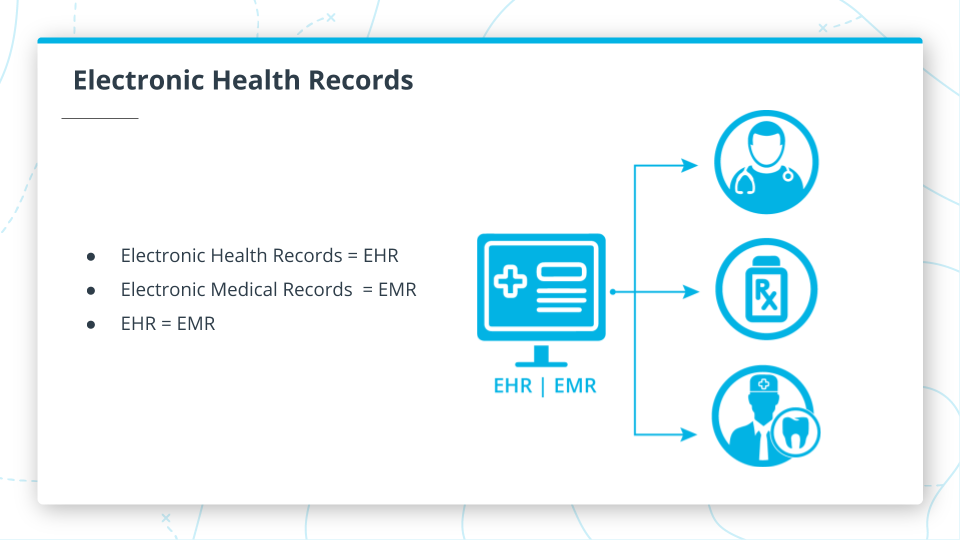
EHR: Electronic Health Record or EMR: Electronic Medical Record
What does EHR stand for?
Again as a quick review from the last section, EHR stands for Electronic Health Records, which is synonymous with Electronic Medical Records, or EMR.
What is EHR data?
EHR data is the data being collected when we see a doctor, pick up a prescription at the pharmacy, or even from a visit to the dentist. These are just a few of the examples where EHR data is collected.
This data is used for a variety of use-cases. From personalizing healthcare to discovering novel drugs and treatments to helping providers diagnose patients better and reduce medical errors.
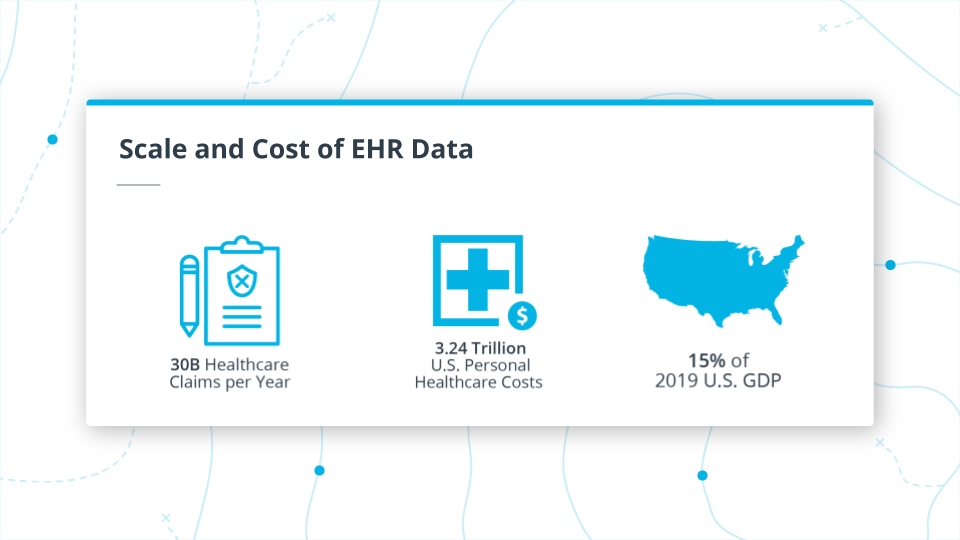
Scale and Cost of EHR Data
To illustrate the scale of EHR data in the U.S. there are some estimates of about 30B healthcare claims just last year! Regardless of the exact amount, anything in this range shows the large volume of claims that are being processed. Besides the access, it is the high cost of healthcare in the U.S. For 2019, personal healthcare costs in the U.S. was projected to be $3.24T by CMS. This is an enormous amount and to put that in perspective that 3T number is almost 15% of the U.S. GDP for 2019. You can learn more about all of this by looking through the links below.
Additional Resources
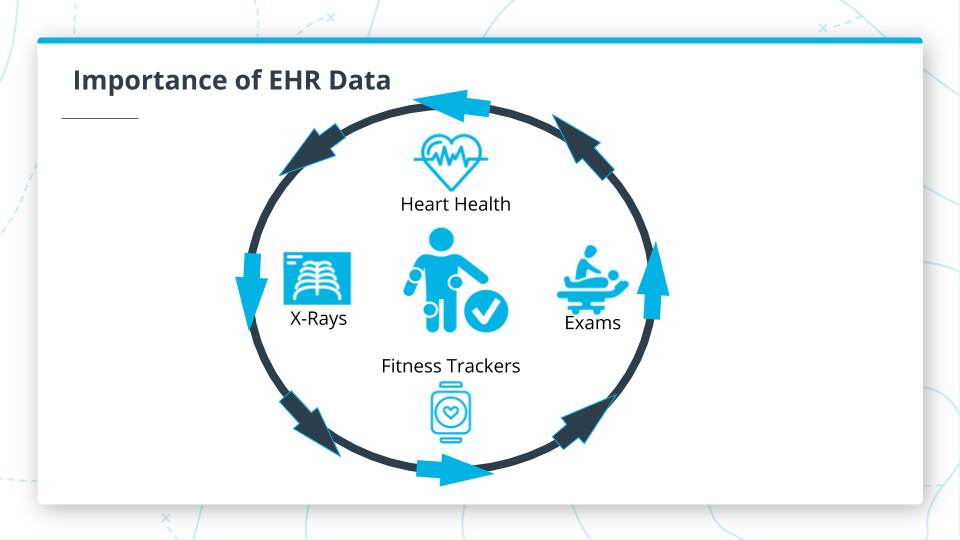
Sources of EHR Data
Importance of EHR Data
EHR data can come from many different sources in today's world, such as:
- Heart rate monitors
- Xrays and other radiology scans
- Fitness trackers
- Other diagnostic tests
All this helps to provide a 360-degree view of a patient's health. Ensuring that this data is collected in an electronic health record is very valuable to the patient and their caregivers. This data becomes even more critical when you can get a longitudinal view of a patient's data and collect it in a way that allows healthcare professionals and data scientists to make meaningful and accurate predictions.
To make this data even more impactful and create better insights and predictions, we need to be able to aggregate the data of many to help address some of the most significant opportunities in healthcare.
Many companies are doing great things with healthcare data including Google and Apple.
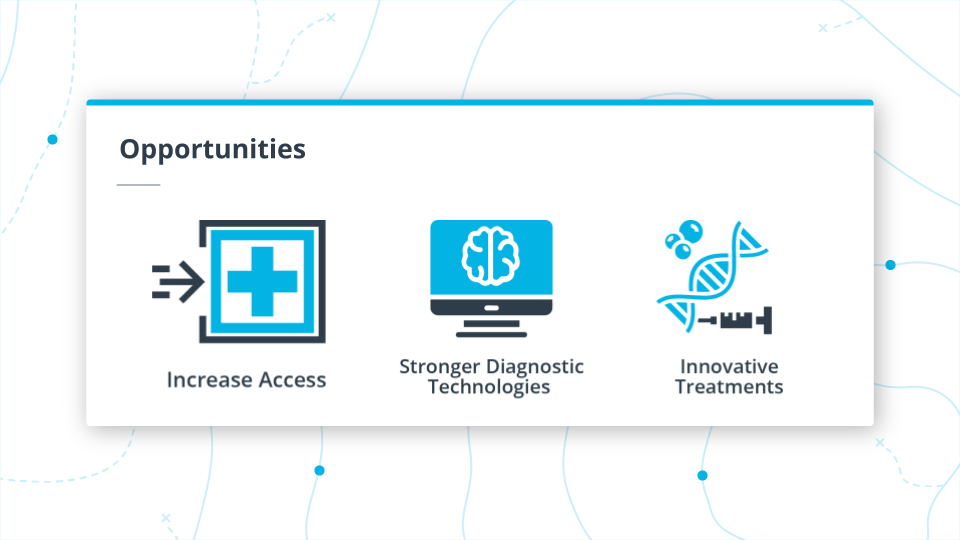
Opportunities of AI in healthcare
Opportunities
As mentioned earlier, there is a major opportunity for impact and with the shift to electronic health records over the last decade. This has enabled totally new ways to analyze and use EHR data. In particular, EHR data and AI will enable increased healthcare access by lowering healthcare costs. One of the major challenges in the U.S. healthcare system is reducing administrative errors. With AI and streamlined technology, we might eliminate many manual error-prone processes.
EHR data will also contribute to better diagnostics, companies are leveraging the large datasets on populations to find ways to predict diseases and conditions well before they occur by seeing trends that only these large datasets can provide.
Lastly, EHR will unlock more powerful treatments by combining EHR data with other data sources like genetics and imaging data to build even more powerful and personalized treatments. Companies are already using EHR data to identify patient cohorts and clinical trials more effectively and predicting risks for different drugs based on population data instead of only human expertise.
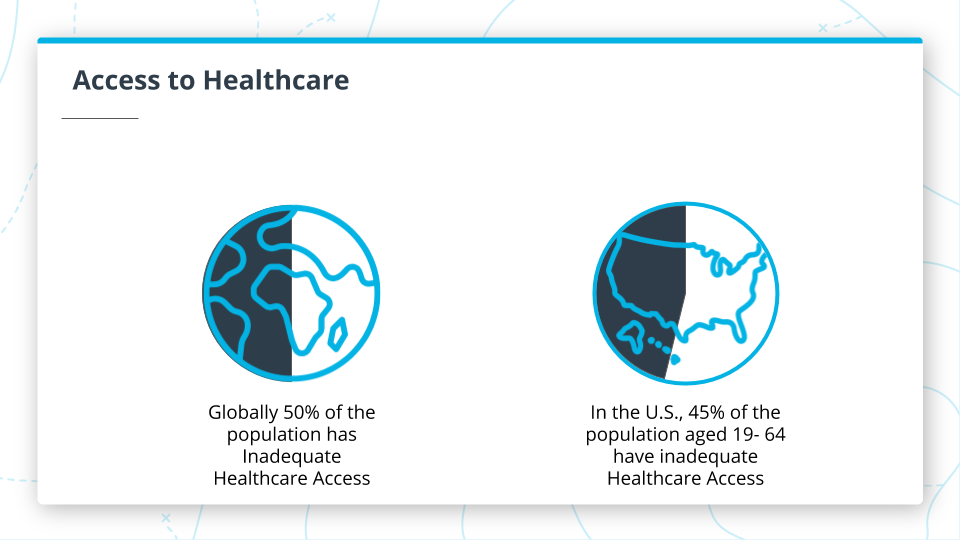
Access to Healthcare
Access to Healthcare
Despite all of the advances in technology for healthcare, there are still many challenges to overcome.
Globally, a couple of years ago, the WHO and World Bank released a report that stated that “half the world lacks access to essential health services.” This issue of access can also be seen in a report by the NYU Commonwealth Fund that found that in the U.S., 45% of U.S. adults between 19 - 64 are inadequately insured. While these statistics might be subject to multiple interpretations, there is a collective agreement that access to quality healthcare is an issue for many globally and also in the U.S.
These are only some of the many opportunities of using AI with EHR data in healthcare. Hopefully, after completing this course, you will be able to apply your new skills to make a huge breakthrough in the medical world. I'm excited to see what new things happen in the field.
Additional Resources
Landscape Quiz
SOLUTION:
- Increase Access
- Reduce Bias
- Create better predictions
- Find new insights into diseases and treatments